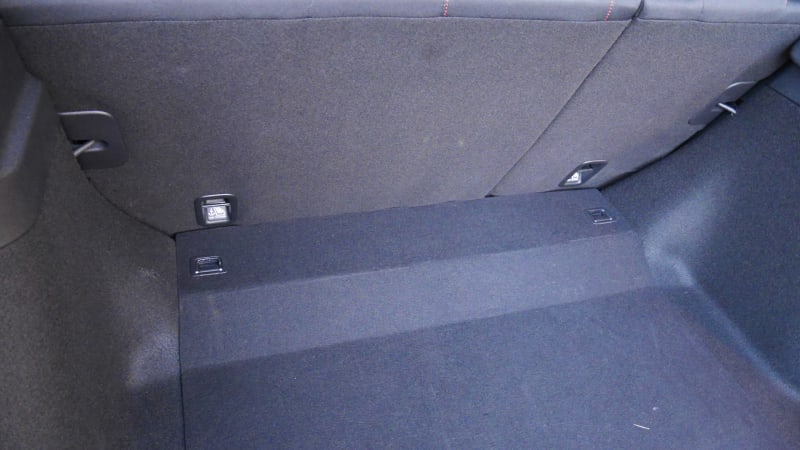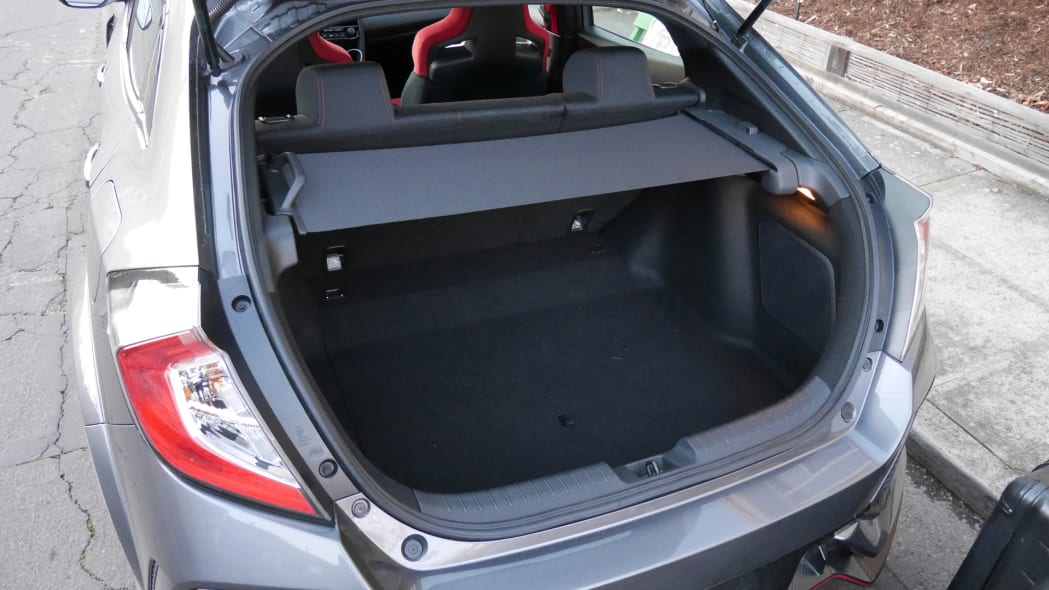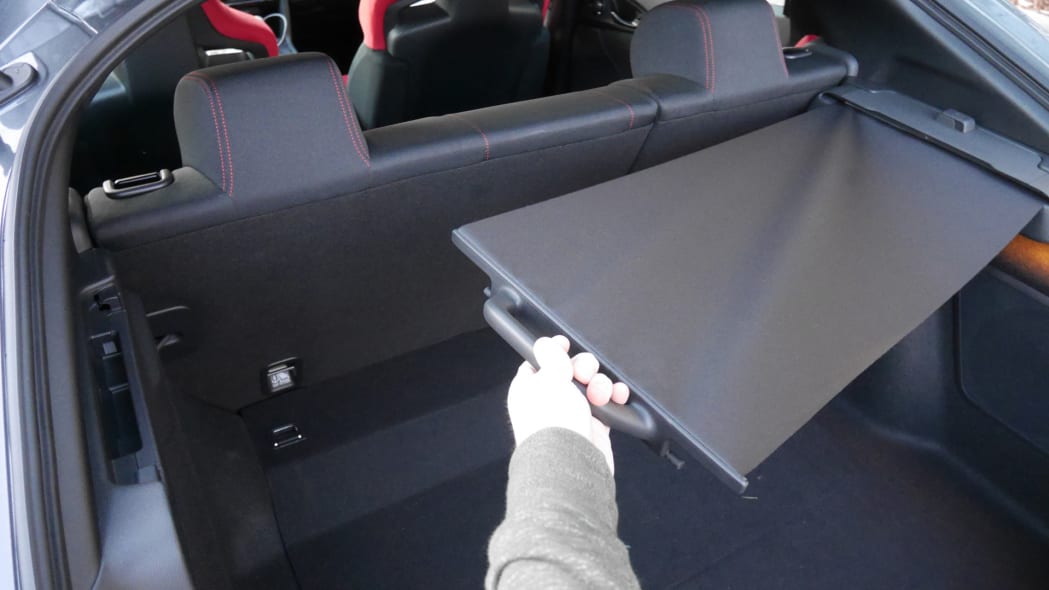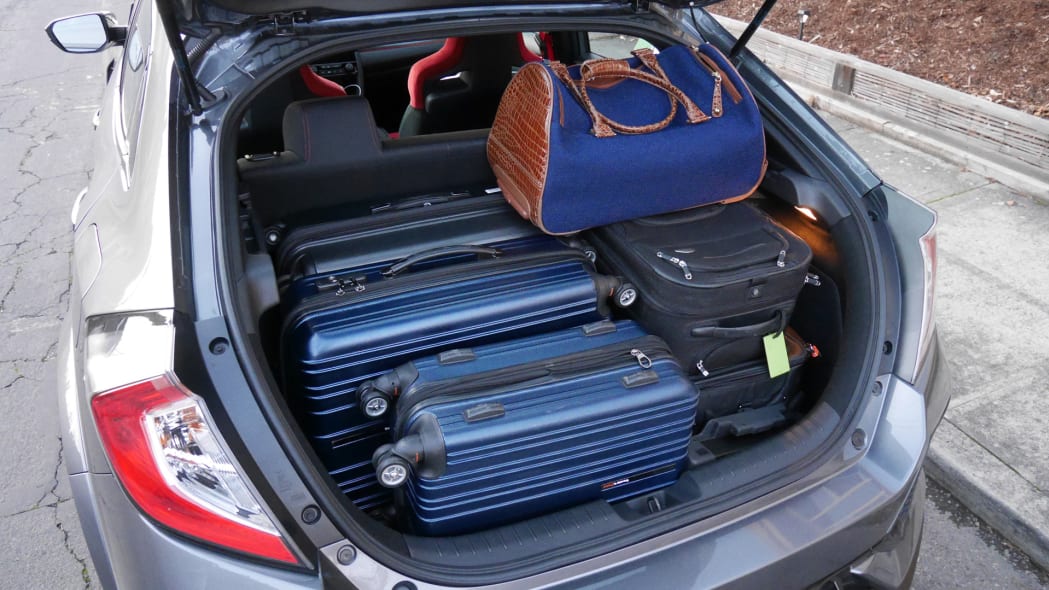Honda Civic Hatchback Luggage Test | A different kind of hatch
https://ift.tt/2S8jyVt
An indelible part of any hot hatch is its ability to be a practical daily driver as well as a fun plaything. The Honda Civic Type R definitely lives up to its practical end of the bargain as you’re about to see, but its cargo area is shared with every other Honda Civic Hatchback, so what you see here on this $37,000 Type R is basically what you’d find on a $23,000 version.
The Civic Hatchback is interesting, though, because it’s not your typical compact hatchback. It is sort of a cross between a Golf-style traditional hatchback and what we’ve come to know as a “sportback” that’s more of a sedan with a gargantuan lid and no parcel shelf. The result is a space that is deeper and much longer than the typical compact hatchback, but not as tall. It may be harder to fit a television box inside, but for luggage, it’s excellent. On paper, the Type R, Sport and Sport Touring have 22.6 cubic-feet behind the back seat, which is better than every compact hatchback competitor and actually larger than nearly every subcompact SUV. The LX, EX and EX-L have even more at 25.7 cubic-feet. The difference is the result of a sportier models’ center exhaust, which results in a different underfloor shape and specifically this hump at the base of the back seat, pictured below.

Here is the total space below. As you can see, it has a cargo cover like every other hatchback does, but it’s not the usual single rigid piece that goes up with liftgate. Nor is it an SUV/wagon-style unit the rolls out from a cartridge mounted against the back seat.

Nope, it slides across the cargo area from a cartridge mounted on the right side.


The cartridge can be removed and then easily stored somewhere inside the car (such as in the picture below, left), which is basically impossible with the huge SUV/wagon-style units unless a specific area has been engineered to store it under the cargo floor (a rarity). There is also a second cargo cover (below, right) that fastens into the liftgate. It’s a flexible unit that just pulls out if needed. For the purposes of this test, it remained in place.


OK, now onto the luggage. As always, I use two midsize roller suitcases that would need to be checked in at the airport (26 inches long, 16 wide, 11 deep), two roll-aboard suitcases that just barely fit in the overhead (24L x 15W x 10D), and one smaller roll-aboard that fits easily (23L x 15W x 10D). I also include my wife’s fancy overnight bag just to spruce things up a bit (21L x 12W x 12D).

So all the big bags fit easily, but the fancy bag BARELY fit under the closed glass. Visibility was still OK and I don’t think it would fly forward.


Now, how does this compare to other hatchbacks? The Subaru Crosstrek/Impreza has 20.8 cubic-feet, but despite its supposed deficit on paper, a previous iteration of this test showed that it can fit the same amount of luggage as the Civic, but the fancy bag more safely fits into place. The Mazda3 hatchback has 20.2 cubic-feet of space, and as luggage test video below shows, it can’t fit the smallest of my roller bags. The fancy bag is a maybe, but I wasn’t using it back then to know for sure. Basically, as always, the numbers do not tell the whole story (although the Toyota Corolla Hatchback’s 17.8 cubic-feet is definitively much worse than all of the above).
Related Video:
Auto Blog
via Autoblog https://ift.tt/1afPJWx
December 18, 2019 at 02:02PM
